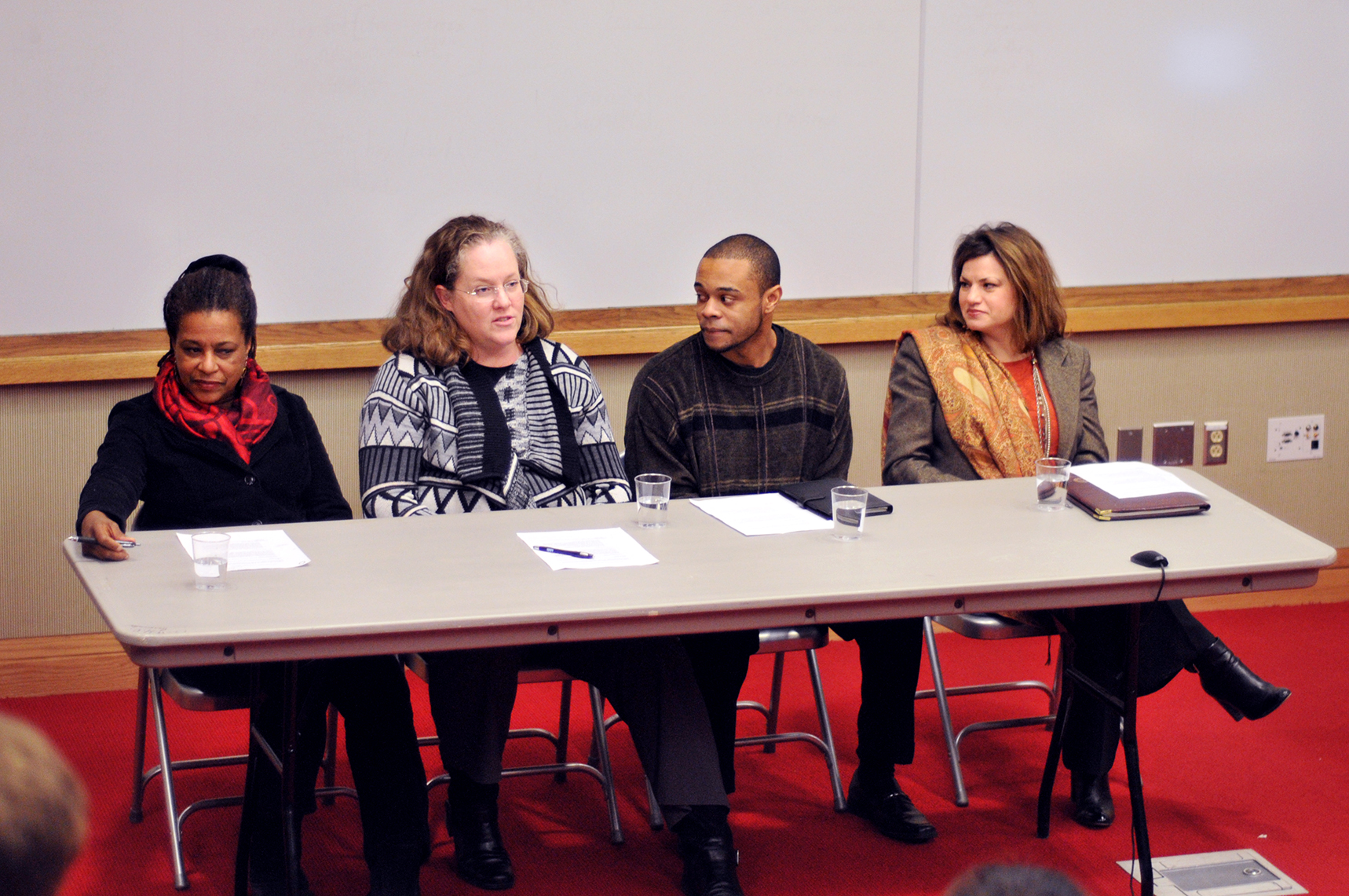
Hamilton College on Feb. 16 welcomed a panel of four area residents, each boasting an impressive resume of work within the Utica community. Panelists included Kevin Alexander ‘13, a founding member of the Underground Cafe, and currently working at the Cornell Cooperative Extension; Dana Hubbard, program coordinator for the Office of New Americans at the Mohawk Valley Refugee Resource Center; Anne Lansing, Executive Director of the Safe Schools Healthy Students Partnership, Inc.; and Cassandra Harris-Lockwood K‘74, president/CEO of For The Good, Inc.
The panel, formally titled The Utica Panel: Examining Social Issues and Community Connections, and sponsored by the Days-Massolo Center, explored themes of community enrichment, cultural capital and the challenges and opportunities facing the Utica community, with the panelists expanding upon their respective works and organizations’ efforts.
Each panelist emphasized the role that the Hamilton community has to play in addressing the issues faced by the city of Utica. Harris-Lockwood recalled “One of the first things I did at Hamilton was the Utica Tutorial Project. And I never thought much about it, we would bring these kids up to help with their schoolwork, but years later someone came up to me and said ‘I remember you. Because of you I see the world. I’m a merchant mariner now.’”
Outside of direct work with at-risk individuals, Kevin Alexander outlined the importance of Hamilton’s role as a center of research, saying “The research aspect at Hamilton is something we really need,” adding, “there are things we need to know about the Utica area that we just don’t know.”
The panel was opened up to questions after initial comments and discussion. One question in particular stirred up passion among the panelists regarding the availability of programs working with criminalized youths and young adults. Anne Lansing discussed the relatively young age of criminals in New York State, saying “when a kid enters the system, it’s the worst thing you can do to a child.” Change, though would have to be enacted through governmental functions, not only through the community. “Working with government is one of the most frustrating things, but also what drives me... because without changing policy, without changing how you do things, you’re just spinning your wheels.”
Dana Hubbard agreed with that sentiment, saying “any organization’s mission is a slow process, it moves at a snail’s pace. I think there will be progress, but it doesn’t come quickly.” Citing her own experiences with the legal system, including working with incarcerated youth, Hubbard reiterated the importance of working with at-risk and criminalized youths. “Yes, there are organizations. You can help someone coming out of jail, be that point of contact. Show them the college... they might not have ever seen anything like that. To show kids... and to be that person who says ‘you have so much you can do,’ just bring them here and say ‘this is an option for you.’”
The evening concluded with an invitation for the audience to approach the panelists individually for questions and discussion. The panelists were keen to emphasize, however, that the intent of the panel was not to be a lecture, but to represent the beginning of an ongoing discussion, one with the capacity to organize and affect real change within the Utica community.
